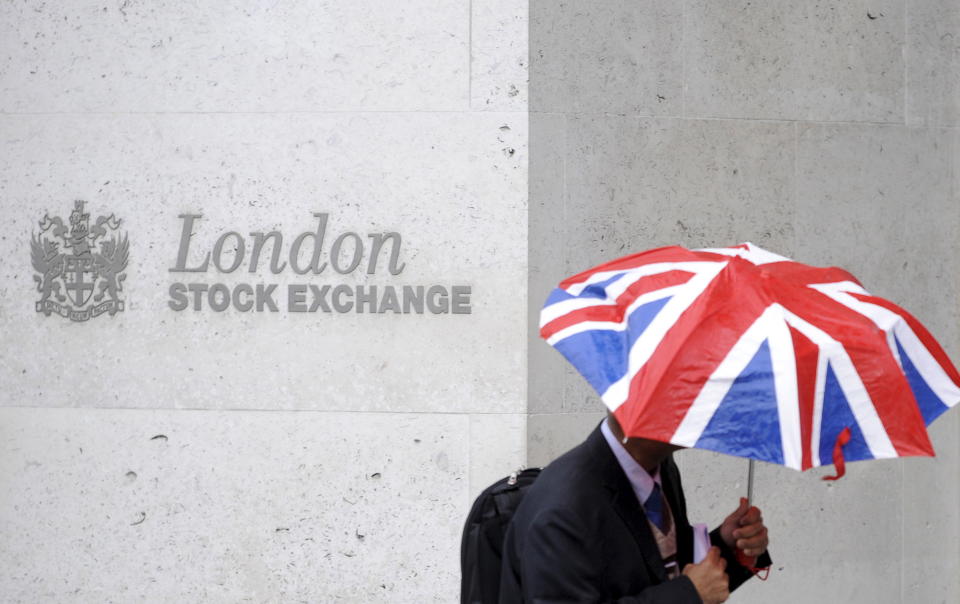'Massacre of CEOs' as almost one in five FTSE 100 bosses change in 2019

Boardrooms across the City of London are waving goodbye to chief executives at a rate not seen in over half a decade, with 18 CEOs announcing plans to leave so far in 2019.
BP’s announcement on Friday that Bob Dudley will step down as boss next February means 2019 now has the highest tally of FTSE 100 CEO departures since 2013, when 18 top bosses also resigned or were fired. The average annual CEO turnover since 2000 is 12, according to stockbroker AJ Bell.
“At risk of using unparliamentary language, the massacre of CEOs continues,” said Neil Wilson, chief market analyst at Markets.com.
READ MORE: 'Unknown' new Tesco CEO must battle Brexit, German discounters, and changing tastes
The CEO exodus — which equates to almost one in five FTSE 100 companies getting a new boss — is largely coincidental.
“There is no one smoking gun, it’s just getting tougher at the top,” Steve Clayton, a fund Manager at Hargreaves Lansdown told Yahoo Finance UK.
Some are leaving after concluding a successful turnaround strategy (See: Ross McEwan at RBS, Dave Lewis at Tesco); others have left under a cloud of investor pressure (BT’s Gavin Patterson, Just Eat’s Peter Plumb, and Unilever’s Paul Polman); and others have simply decided to retire or seek a change of scenery after long stretches at the top (Martin Gilbert at Standard Life Aberdeen, Ashtead’s Geoff Drabble, and BP’s Bob Dudley).
The spike is partly explained by shortening tenures. AJ Bell calculated the average FTSE 100 chief executive is now in the job for just 5.4 years, compared with 8.3 years in 2010.
“CEO tenures are shortening and this has led to an increase in the rate of change,” Clayton said.
READ MORE: Metro Bank founder to quit as chair in December after dreadful year
The rash of exits creates a headache for investors and fund managers, who must now get to grips with an unusually high number of new bosses all at once. Some are unknown and largely unproven, such as Ken Murphy at Tesco.
New bosses with new plans could spell more volatility in stock prices as investors reassess the lay of the land. They may also want to consider the higher CEO turnover as a data point in itself.
“The question that investors must now address is whether the pace of CEO changes on both sides of the pond is telling them something about the global economy and corporate profits,” Russ Mould, investment director at AJ Bell, said last month.
“According to data from Chicago-headquartered business and executive coaching specialist Challenger, Gray, and Christmas, 159 US CEOs stepped down in August 2019, a monthly record,” Mould said.
“That takes the total number of changes in boss to 1,009 for 2019 to date, 15% higher than a year ago and the highest total for the first eight months of the year since Challenger, Gray, and Christmas began to keep records in 2002.
“This puts the US on track to exceed the number of CEO departures seen in 2008, when many bosses not surprisingly took the chance to bail out when they could.”
Investors will be hoping these trends are just a coincidence and not a sign of wider problems in the global economy.
————
Oscar Williams-Grut is Yahoo Finance UK’s City correspondent. He covers banking, fintech, and finance for Yahoo Finance UK. Follow him on Twitter at @OscarWGrut.
Read more:
'Unknown' new Tesco CEO must battle Brexit, German discounters, and changing tastes
Metro Bank founder to quit as chair in December after dreadful year

 Yahoo Finance
Yahoo Finance 